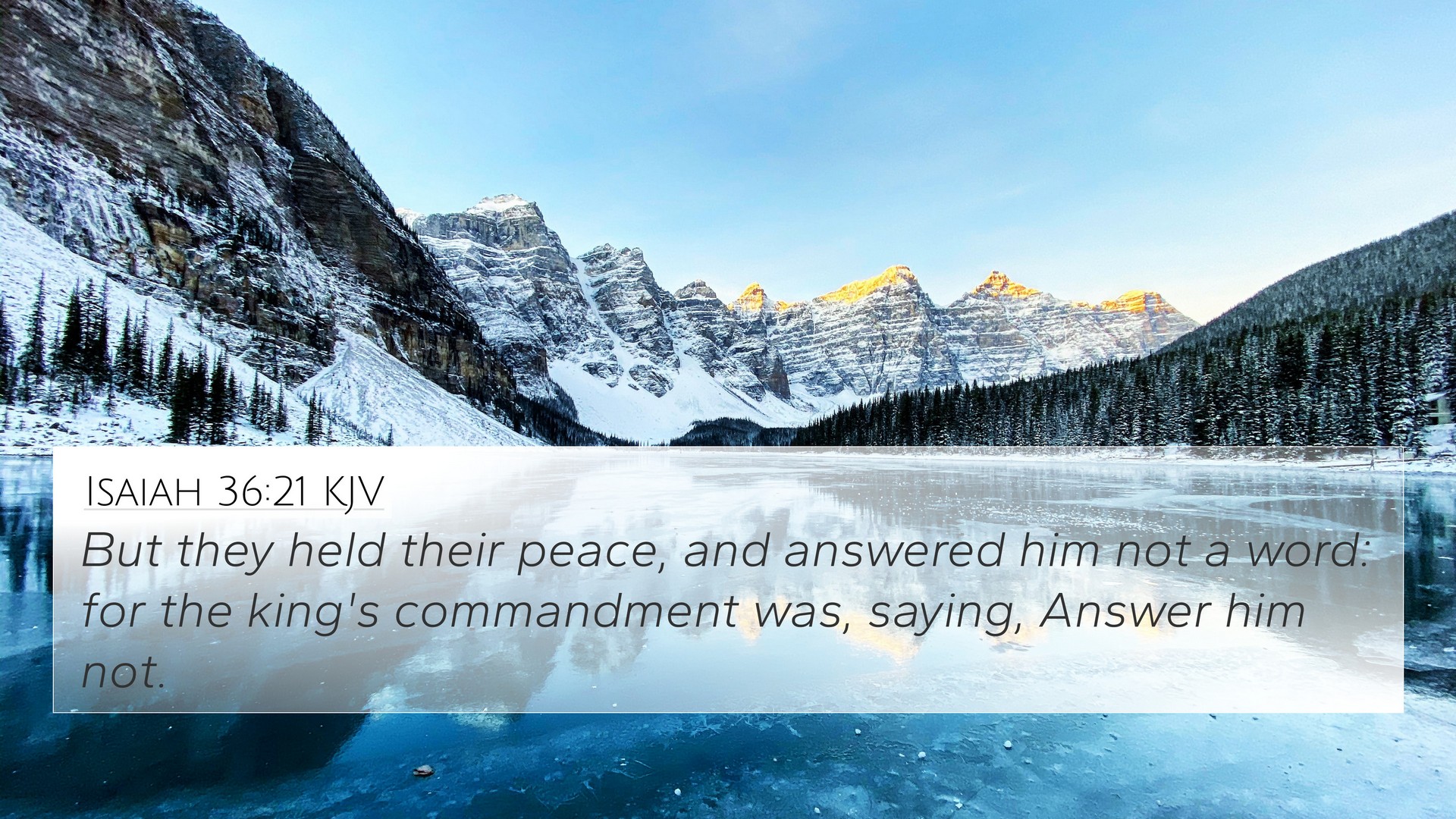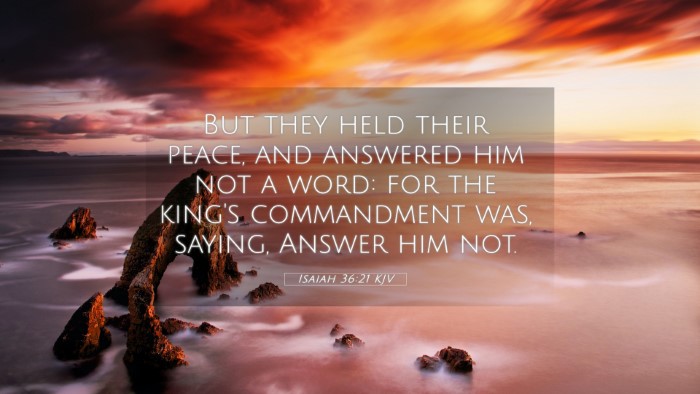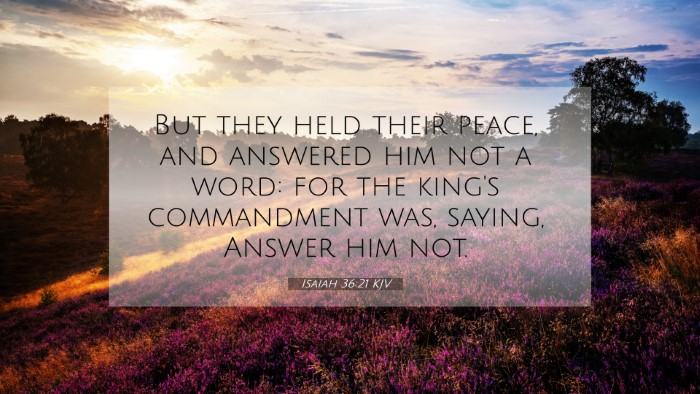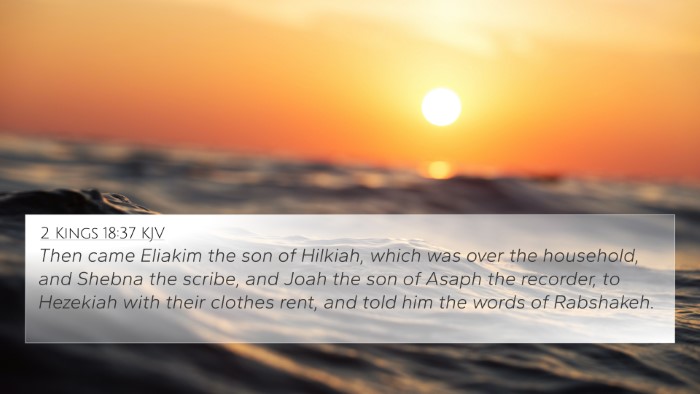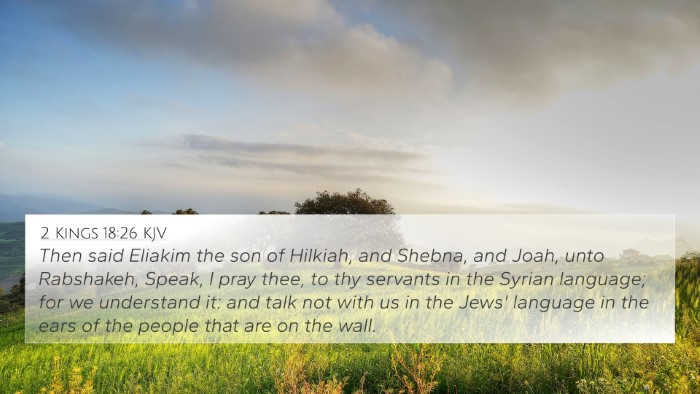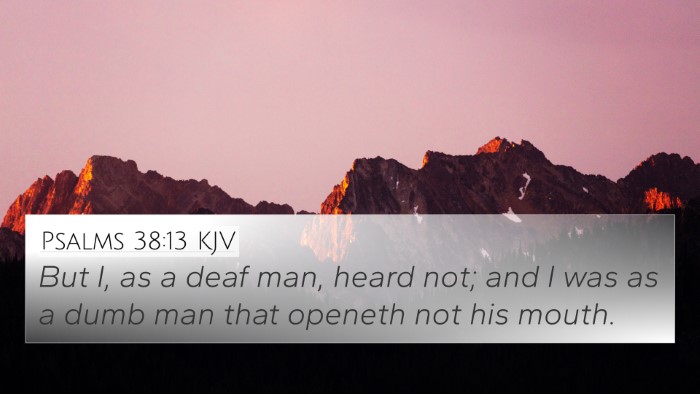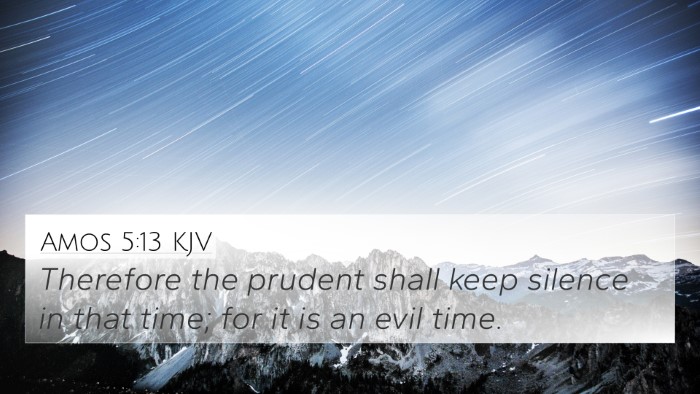Understanding Isaiah 36:21
Verse Context: Isaiah 36:21 states, "But they held their peace and answered him not a word: for the king's commandment was, saying, Answer him not." This verse is set during the Assyrian siege of Jerusalem, highlighting a moment when the representatives of King Hezekiah chose silence in response to the intimidating words of Rabshakeh, the Assyrian emissary.
Meaning and Interpretation
The silence of Hezekiah’s officials can be interpreted as a demonstration of their faith and restraint amid challenges. Scholars such as Matthew Henry discuss the importance of this silence, suggesting it was a strategic decision to avoid escalating the situation further. Similarly, Adam Clarke emphasizes the gravity of the moment, underlining that sometimes silence speaks louder than words in the face of provocation.
Theological Insights
This verse encapsulates a deeper theological principle of trusting in God rather than relying on human wisdom or fear. The decision to remain silent can be seen as an act of faith, indicative of a broader covenant relationship between God and Israel, which is explored thoroughly in the commentaries.
Public Domain Commentary Insights
- Matthew Henry: Emphasizes the strength found in silence and the wisdom of not engaging in futile arguments with one who speaks blasphemously against God.
- Albert Barnes: Points out that the refusal to answer was an acknowledgment of their understanding of the situation's gravity, hinting at their reliance on divine intervention rather than human reasoning.
- Adam Clarke: Discusses the pressures faced by Hezekiah and his officials and suggests that their silence was an emblem of trust in God's ultimate deliverance.
Cross-References and Connections
This verse has several connections with other parts of Scripture that enhance its understanding:
- 2 Kings 18:36: A parallel account of the siege where officials also choose silence.
- Isaiah 53:7: Jesus exemplifies similar silence before His accusers, showcasing humility and obedience.
- Psalms 38:13-14: A personal reflection of silence in the face of adversaries as an expression of trust in God.
- Proverbs 17:28: Highlights wisdom in silence, reinforcing the value of measured responses.
- Matthew 27:12-14: Jesus' silence before His accusers mirrors the silence of Hezekiah’s representatives.
- 1 Peter 2:23: Draws a connection to the way believers are encouraged to respond under trial.
- James 1:19: Encourages being quick to hear and slow to speak, emphasizing the wisdom in restraint echoed in Isaiah 36:21.
Application in Modern Faith
The relevancy of this verse today cannot be overstated, especially in a world filled with conflict and discourse that's often provocative. The call for silence in the face of blasphemy or provocation challenges individuals to evaluate their responses. In life, reflecting on these insights can provide guidance on choosing faith over fear, spiritual strength over immediate reactions.
Conclusion
Isaiah 36:21 serves as a reminder of the power of silence in the face of overwhelming challenges and the importance of placing trust in God. The connected verses and themes found throughout Scripture offer a comprehensive understanding of this moment within the broader narrative of faith, prayer, and divine intervention. Through careful study and cross-referencing with other biblical texts, believers can deepen their understanding of God's sovereignty in seemingly hopeless situations.
Further Study
For those interested in delving deeper into the connections between Bible verses regarding themes of faith, silence, and reliance on God, using tools such as a Bible concordance or Bible cross-reference guide can enhance understanding and provide comprehensive insights into scriptural cross-referencing.
